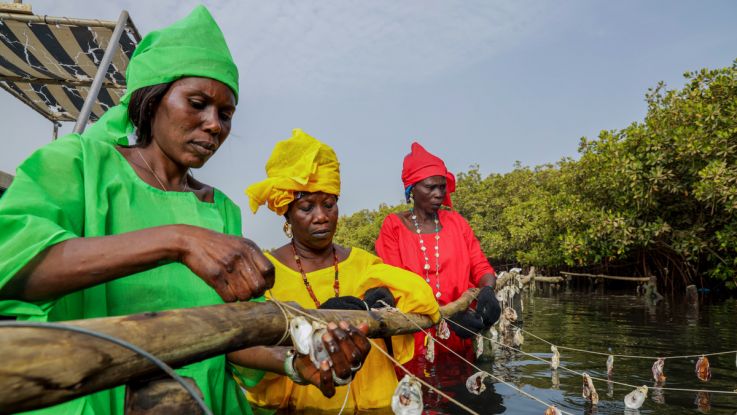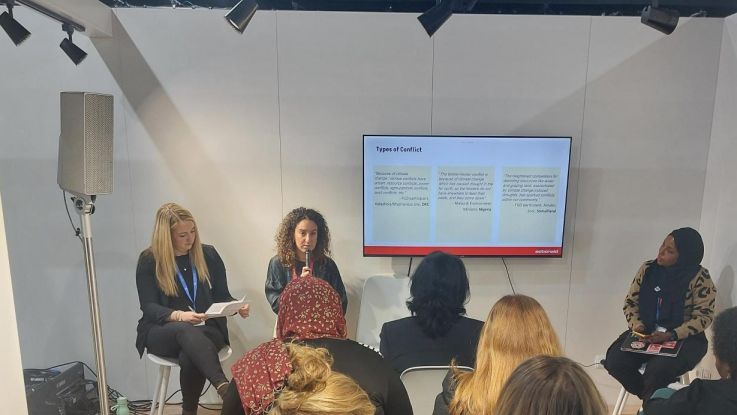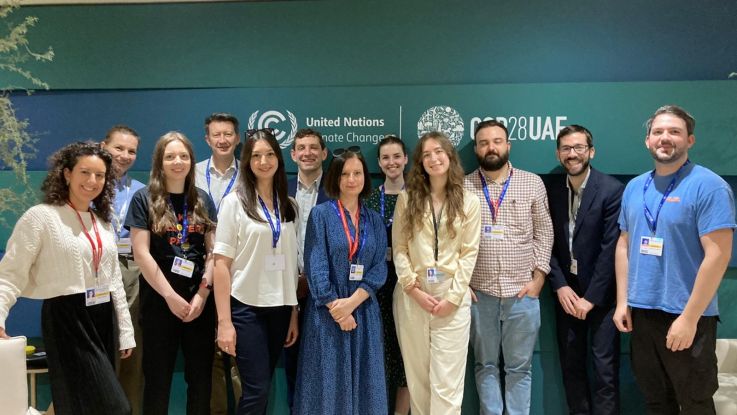Hunger hurts: mothers struggle to feed their children
15 April 2016
Climate change and the El Niño weather phenomenon mean that families already living on the margins of survival are struggling to grow or buy the food they desperately need. In Somaliland, drought is causing harvests to fail and turning fields to dust. In Bangladesh, flooding rivers and rising seas are swamping crops and robbing people of their livelihoods. We're working to support the most vulnerable - but we need your help.
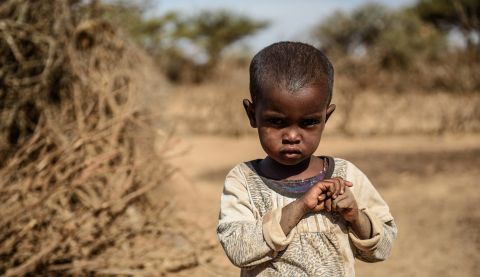
Malyuun fears for her three-year-old daughter, Nimo. . Photo: ,Jennifer Huxta/Actionaid
Somaliland: hungry children, dust and drought
El Niño has caused the lowest recorded rainfall across parts of Southern Africa in decades. Crops and livestock are dying as drought takes hold. El Niño has already made over 34 million people hungry in Eastern and Southern Africa. That number is set to double in the next 12 months.
It is in Africa - where an estimated one million children are already malnourished - that the destructive effects of El Niño are doing the most damage. In Somaliland alone more than 800,000 people are in a state of crisis because their crops have failed and they do not have enough food.
Malyuun Ahmed Omer is a mother-of-eight living in western Somaliland. Most nights, she has to listen to her children, including three-year-old Nimo, pictured above, cry themselves to sleep from hunger. They are sick but she can’t afford to take them to the clinic.
“When the children fall asleep without eating something, they wake up so weak. You can see from their face and their body," Malyuun said.
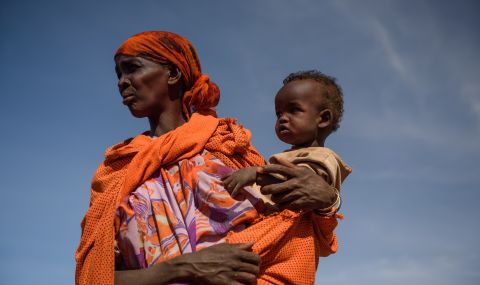
Malyuun holds her one-year-old son, Sakeriye-Ahmed.
The family has lost 15 sheep during the drought. Her two remaining cows are a lifeline because they provide her with milk. But she is worried they will die as the drought continues.
In December 2015 ActionAid gave food and water to 400 vulnerable families, including Malyuun’s. We distributed rice, wheat flour, dates, sugar, powdered milk, and oil.
In the longer term, we are building water and water pumps, and training women in sustainable farming methods to help them to grow food for their families. Since 2013, ActionAid in Somaliland has constructed 74 shallow wells and 72 water pumps, restored 85 water tanks, and trained 3,330 participants on agriculture techniques.
For Malyuun, her water tank is a life saver: "When the rain comes, we have a place to save the water,” she said.
Bangladesh: torrential rain and floods
In Bangladesh, climate change is causing ever more extreme weather. With more than 700 rivers, rising sea levels and extreme weather like cyclones, flooding is becoming ever more severe and frequent.
Fatema is 21 and lives with her two children, Reeath and Jannatul. Their village was regularly inundated by floodwater. Reeath contracted diarrhoea from the dirty water.
“I felt fear because we were surrounded by water,” Fatema said. “I was thinking ‘What will happen? I can’t get to a doctor. Will he live or die?’”
“I tried to breastfeed my son and give him my share of food. My stomach would ache with hunger. When you are hungry nothing feels good.”
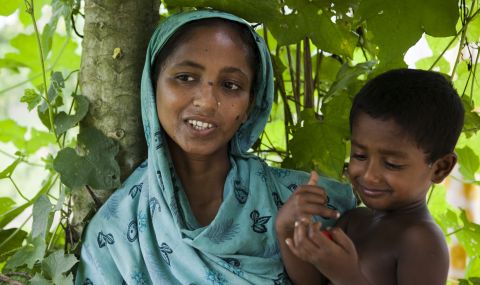
Fatema and her son, Reeath, three, outside their flood-proof home in Bangladesh, built thanks to the help of ActionAid supporters .
Thankfully, Reeath survived and the family now live in a new village built by ActionAid. It is built on a mud plinth, above the murky flood waters. Fatema can now feed her children three meals a day, sell crops and save money for the future.
"I don’t feel fear now,” Fatema said. “Since moving here I dream about my son’s future. I didn’t have that hope before."
In addition to our innovative work raising villages, we provide flood-resistant seeds and tools so that communities can grow the food that they need.
Please help us support more women like Malyuun and Fatema.

